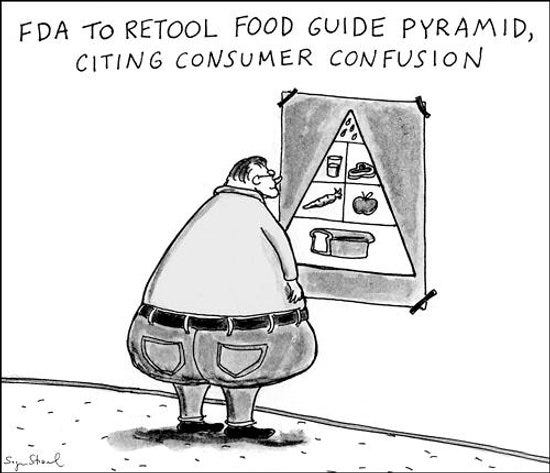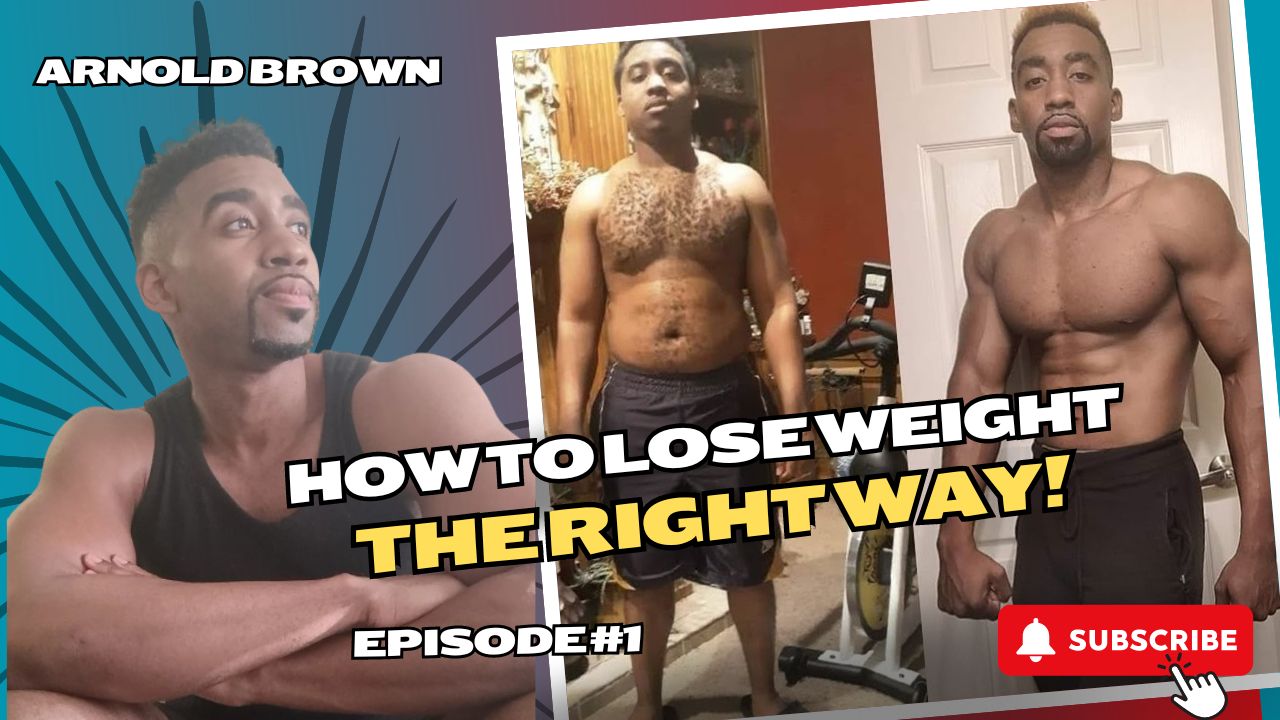Over the years, misconceptions about food have led many of us down a path that harms our metabolism, disrupts our energy levels, and impacts our overall health. These “food lies” have been perpetuated by outdated guidelines, clever marketing, and misinformation, leaving many of us confused about what’s truly healthy. Let’s break down these five major myths and uncover the truth about what our bodies actually need to thrive.
@thenewlifechannel♬ original sound – The New Life Channel
1. The Food Pyramid: A Flawed Foundation

The food pyramid, introduced decades ago as the gold standard of nutrition, recommends a diet heavily based on carbohydrates, particularly grains like bread, rice, and pasta. According to the pyramid, we should consume up to 14 servings of carbohydrates daily, which translates to the nutritional equivalent of eating white bread at every meal.
Why is this problematic? Carbohydrates are quickly broken down into sugar in the body, causing spikes in blood sugar and insulin levels. When this happens repeatedly throughout the day, it can lead to insulin resistance, weight gain, and other metabolic issues. Furthermore, the overemphasis on grains often crowds out healthier options like vegetables, lean proteins, and healthy fats.
The truth is, flipping the food pyramid on its head—making healthy fats, proteins, and vegetables the foundation of your diet—would likely result in better health outcomes. Focus on nutrient-dense foods that support your metabolism and energy levels rather than foods that lead to rapid sugar crashes.
2. Eating Every 2 to 3 Hours: Necessary or Harmful?

We’ve been told that eating every 2 to 3 hours is essential to “keep our metabolism going.” This advice has become so widespread that many believe snacking constantly throughout the day is critical for good health.
However, this couldn’t be further from the truth.
Fifty years ago, people didn’t eat every few hours, yet obesity rates were far lower than they are today. Snacking frequently causes the pancreas to release insulin each time food is consumed. Over time, constant insulin release can overwhelm the body, leading to insulin resistance—a condition now affecting 88% of Americans.
Instead of grazing all day, consider giving your body time to reset between meals. This allows insulin levels to drop, enabling your body to tap into fat stores for energy rather than relying solely on glucose. Practices like intermittent fasting, where you focus on eating during specific windows, can be highly beneficial for reversing the negative effects of constant eating.
3. Hunger Is Bad: A Harmful Myth

We’ve been taught to fear hunger as if it’s an emergency that must be addressed immediately. The belief that getting hungry will inevitably lead to overeating has led to the promotion of snacks, quick fixes, and unnecessary meals.
In reality, experiencing hunger is natural and even beneficial. Allowing yourself to feel hungry a few times a day helps your body tap into stored energy (fat) for fuel. It’s a reminder that your body has reserves it can use when needed. Hunger becomes harmful only when ignored for extended periods or when the body lacks proper nutrients during meals.
Instead of fearing hunger, embrace it as a normal signal from your body. By planning balanced meals with adequate protein and healthy fats, you can minimize extreme hunger and avoid the blood sugar crashes that often drive overeating.
4. Breakfast Is the Most Important Meal of the Day

This belief stems from marketing campaigns by breakfast cereal companies, particularly Kellogg’s, in the 1970s. While the slogan has stuck, the idea that skipping breakfast is detrimental to health doesn’t hold up under scrutiny.
For many, eating a traditional high-carb breakfast of cereal, bagels, or orange juice leads to a spike in blood sugar, followed by a crash that leaves you feeling hungry again just a few hours later. Instead of setting you up for success, this pattern traps you in a cycle of sugar dependency throughout the day.
Skipping breakfast, especially during periods of intermittent fasting, allows insulin levels to remain low. This promotes fat burning and helps stabilize energy levels. If you choose to eat breakfast, opt for a high-protein, low-carb option like eggs, avocado, or Greek yogurt to keep hunger at bay and fuel your body effectively.
5. Fat Is Bad for You

One of the most damaging food myths is the idea that fat is inherently bad and should be avoided at all costs. This belief gained traction during the low-fat diet craze of the 1980s and 1990s, which vilified all types of fat without distinguishing between healthy and unhealthy sources.
The truth is, fat is essential for our bodies. Healthy fats, such as those found in avocados, olives, olive oil, nuts, and seeds, are crucial for:
- Supporting brain function
- Absorbing fat-soluble vitamins like D, A, E, and K
- Providing long-lasting energy
When fats were removed from many processed foods, manufacturers replaced them with sugar and refined carbohydrates to enhance flavor, inadvertently worsening health outcomes. Instead of avoiding fat, focus on incorporating healthy fats into your diet to support your body’s natural functions and improve overall well-being.
Breaking Free from the Food Lies

Once I began unlearning these harmful food myths and relearning how to eat in a way that supports my body, my health improved dramatically. I shifted my focus to:
- Eating whole, nutrient-dense foods
- Incorporating healthy fats and proteins
- Allowing my body time to reset through intermittent fasting
One of the most impactful changes I made was adopting a simple and sustainable system that includes two key tools:
- A morning tea that curbs appetite and helps me fast longer, keeping me in fat-burning mode.
- A fiber blend that I drink before meals, which helps manage blood sugar spikes and promotes satiety.
This system has transformed my relationship with food and my health. If you would like to learn more about it, subscribe to get more information:
Conclusion

The food lies we’ve been told have caused significant harm, but the good news is that it’s never too late to change. By understanding and rejecting these myths, you can take control of your health and make informed choices that align with your body’s needs.
If you’re ready to take the next step, I highly recommend learning about intermittent fasting—a powerful strategy to reset your metabolism, reverse insulin resistance, and break free from the cycle of misinformation.
To get started, check out my blog: How Intermittent Fasting Helps You Lose Weight: A Complete Guide. It’s packed with practical tips and insights to help you reclaim your health and feel your best.
Take control of your health today and start your journey toward a more vibrant, empowered life!
Spread the Word: Let’s Empower Our Community

As you continue reading upcoming articles, I encourage you to share this website with friends, family, and colleagues in our community who could benefit from these insights. By spreading the word, you help build a supportive network dedicated to uplifting the health and well-being of our community.
Visit my website to explore more articles and resources designed to offer practical advice for improving health. Your support helps create a space where we can unite in pursuing better health, self-care, and a stronger community.
Want to stay updated on the latest health topics, tips, and upcoming blogs? Subscribe to my email list and never miss out on valuable insights that can help you and your loved ones on your wellness journey.
Together, let’s uplift one another. Share and explore the available resources, subscribe for updates, and join me in the journey toward a healthier, more empowered community.
Your Thoughts Matter

Thank you for taking the time to read this blog. I hope it resonated with you and provided meaningful insights into the health challenges many in our community face. I’d love to hear your thoughts—what obstacles do you encounter, and what strategies have helped you? If there’s a particular aspect of health or wellness you’d like me to explore in future posts, please share your ideas. Your feedback is invaluable and helps me focus on what matters most to you. Let’s keep this conversation going and support one another on the path to better health!
Who is Arnold Brown?

Raised in Louisiana, Arnold Brown graduated from Louisiana State University with a bachelor’s degree majoring in Spanish and minoring in Mandarin Chinese. Upon graduation, Arnold accepted the opportunity to live for two years in China, where he taught English as a Second Language at the University of Ningxia. Being the only African American male in the city where he lived, Arnold describes his experience as absolutely life-changing. Arnold speaks 4 languages fluently, English, Spanish, Portuguese, and Mandarin Chinese. Arnold currently teaches Spanish classes online, tutors, and also has very own self-paced Spanish learning online program. If you would like to learn more about Arnold’s background, click here.
Arnold Lost 63 Lbs in 18 Weeks
Having undergone a profound transformation in 2020, Arnold also discovered a deep passion for health and wellness, and now dedicates himself to teaching the same principles that transformed my life, especially within the community. As a certified personal trainer, nutritionist, bodybuilding specialist, and youth fitness instructor, learn how Arnold lost 63 lbs in 18 weeks by reading his story here.
